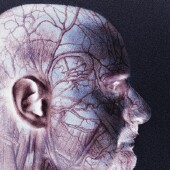- Could Your Grocery Store Meat Be Causing Recurring UTIs?
- Are You Making This Expensive Thermostat Error This Winter?
- Recognizing the Signs of Hypothyroidism
- 10 Strategies to Overcome Insomnia
- Could Artificial Sweeteners Be Aging the Brain Faster?
- Techniques for Soothing Your Nervous System
- Does the Water in Your House Smell Funny? Here’s Why
- Can a Daily Dose of Apple Cider Vinegar Actually Aid Weight Loss?
- 6 Health Beverages That Can Actually Spike Your Blood Sugar
- Treatment Options for Social Anxiety Disorder
Experts Reject Routine Screening for Narrowed Neck Arteries


Routine screening for a narrowing of the neck arteries should not be done in healthy adults, an influential panel of U.S. health experts says.
The arteries that run along both sides of the neck supply blood to the brain. If they become narrowed — a condition called carotid artery stenosis — this reduced blood flow to the brain can boost the risk of stroke.
But the downside of having everyone tested for narrowed carotid arteries would be too many unnecessary and potentially risky procedures afterwards, the U.S. Preventive Services Task Force said in a final recommendation statement. Therefore, general screening of healthy adults for the condition is not advised.
“Screening for carotid artery stenosis often leads to follow-up testing and surgeries that can cause serious harms, including stroke, heart attack, or death,” task force member Dr. Jessica Herzstein said in a news release from the group. She explained that this type of blocked artery “is uncommon in the general adult population, so screening everyone would lead to many false-positive results.”
A false-positive result is when a test shows that a person has a condition that he or she actually does not have.
The new recommendation does not apply to adults with a history of stroke, mini-stroke, or signs and symptoms of stroke. These people should consult with their doctors about getting tested, the task force advised.
“The best way to prevent a stroke, and other cardiovascular diseases, is to focus on the things we know work,” task force chair Dr. Michael LeFevre said in the news release. “This includes controlling high blood pressure and cholesterol, not smoking, being physically active, maintaining a healthy weight, and eating a healthful diet.”
Two experts agreed with the panel’s decision.
“In an era of widely available medical testing, it is becoming increasingly clear that more tests do not always add up to better patient health,” said Dr. Abigail Chen, an internist at Mount Sinai Beth Israel, in New York City.
“As primary care doctors, we have a responsibility to our patients to recommend testing which has been shown to be helpful and not harmful,” she added. “Our goal is not to do every test on every patient, but rather the right test for the right patient.”
Dr. Sarah Cherian is a vascular neurologist at Winthrop University Hospital in Mineola, N.Y. She agreed with the task force that it is better to restrict carotid artery screening “to high-risk patients such as those who are smokers or patients with known heart disease, peripheral arterial disease, or are symptomatic with stroke-like symptoms.”
Cherian believes that the test “has a higher sensitivity level and, therefore, will have false-positives, which may ultimately require additional testing such as a CT angiogram to prove or disprove the [blood vessel] abnormality.”
The final recommendation was published in the July 7 online edition of the journal Annals of Internal Medicine.
The task force is an independent, volunteer panel of national experts in prevention and evidence-based medicine.
More information
The U.S. National Library of Medicine has more about carotid artery disease.
Source: HealthDay
Copyright © 2026 HealthDay. All rights reserved.










